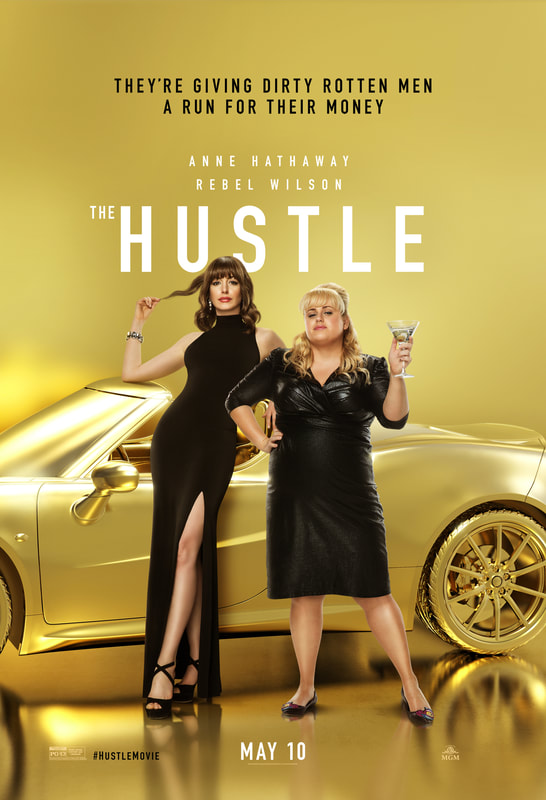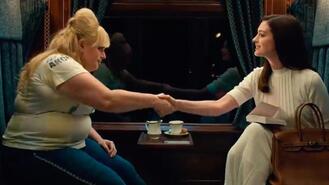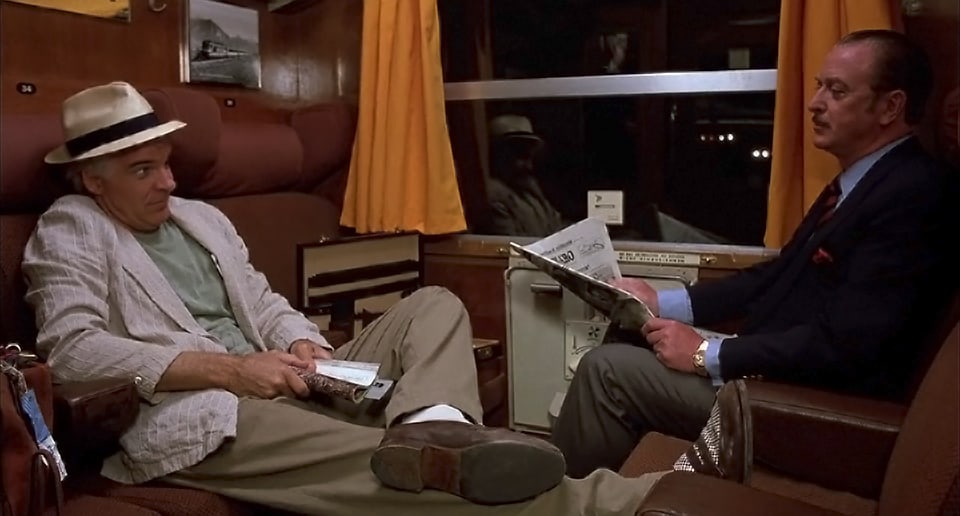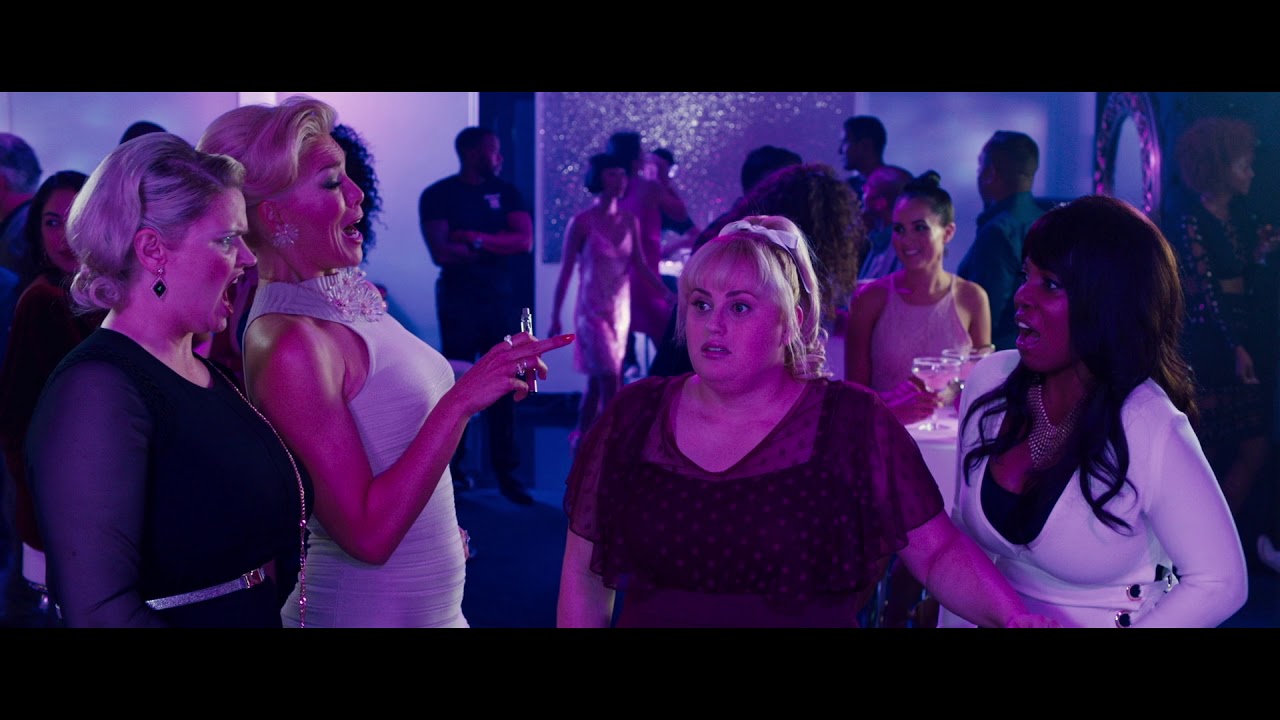The scene in the original where Freddy (Steve Martin) meets Lawrence (Micheal Caine) establishes the idea of the con as a way to get money out of women instead of the traditional man providing for the woman. Rebel Wilson’s character Penny has a deeper reason for why she performs her cons: she sees men using women’s sensitivity and emotions against them and decides to turn the tables. Instead of just being a humorously flawed rationale like Freddy’s, it sets up a deeper theme that is developed throughout the film. When Anne Hathaway’s character Josephine is teaching Penny how to do the sophisticated cons that she does she modifies Penny’s approach by saying that what men want from women more than sex is to be a hero. Men like to be able to come to the rescue of vulnerable women.
Alongside this is another theme of women supporting women. Penny initially spills everything about what she does to Josephine because as another woman she would understand her reasons for it. But after they find they are trying to do the same job in the same town they are at odds with each other. Josephine is trying to drive Penny out of Beaumont Sur Mer so that she can remain at the top while Penny sees an opportunity to expand her petty crimes to something bigger.
In a competition to see who can get money out of their target, Thomas, Josephine is pretending to be a psychiatrist helping Penny with her supposed psychological blindness. A scene in a club has Penny talking to a nearby group of women while Josephine dances with Thomas. To try to get him alone with her Penny tells the women that he was her boyfriend until Josephine stole him from her. The idea of sisterhood and women supporting one another is shown by how angry they are on her behalf and their willingness to confront Josephine to help Penny. In the 1988 version this happens but it is the bond of Naval service that is exploited by Freddy to get rid of Lawrence.
Remakes of well loved movies tend to be judged more harshly than most movies. However, I felt that this film deserved a lot more recognition than it got. The plotline was nearly identical to the original, yet it was able to address some really key issues that get left out of films. Recently there have been quite a few films like Oceans Eight (Gary Ross, 2018), Ghostbusters (Paul Feig, 2016), and What Men Want (Adam Shankman, 2019) which have taken original films and gender swapped the characters to retell the story. They haven’t tended to have very good receptions because they were viewed as old and repetitive.
Even with stories that have been told before, it is a valuable exercise to look at how different the meanings of scenes can be just by switching the main characters from men to women. The Hustle is an enjoyable comedy that is cleverly made and employs phenomenal actors, but a lot of its value lies deeper within the context of the scenario the audience is presented with. Looking at the original and the remake side by side shows that the female lead version is about more than just having female leads. The film points out the disparity between the ways men and women experience the world. In the recent times of the #metoo movement and the 4% challenge to have female directors take the lead in studio projects this is an important message to spread and one that shouldn’t be glossed over just because a film reuses old jokes.





 RSS Feed
RSS Feed
